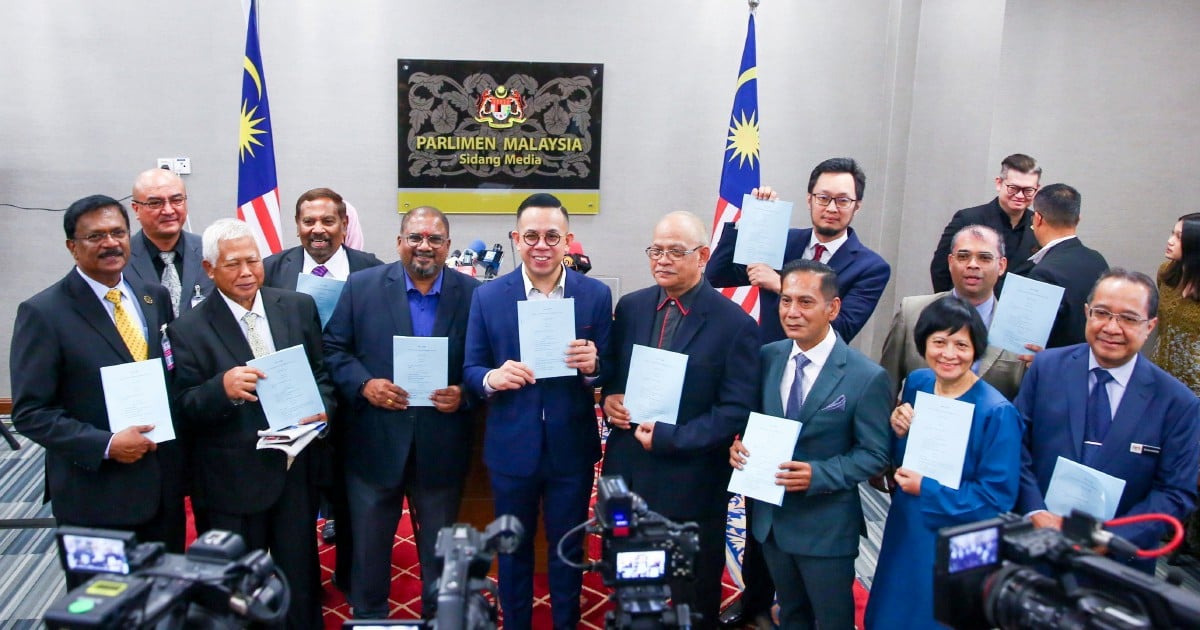KUALA LUMPUR: The Gig Workers Bill, tabled for its first reading in the Dewan Rakyat yesterday, is expected to evolve over time to provide stronger protection for gig workers.
Despite calls to address perceived gaps in the draft law, Gabungan eHailing Malaysia (GEM) chief activist Jose Rizal said the Human Resources Ministry had already carried out a lengthy and comprehensive engagement process with the gig industry prior to its tabling.
As such, he said there should be no further reason to delay its passage.
“The bill should be expedited to the second and third readings in the Dewan Rakyat and then to the Dewan Negara, without postponement.”
Jose said the bill currently addressed four key areas: a clear definition of gig workers, the determination of wage rates, a complaints and dispute resolution mechanism, and social protection.
“These are the core pillars that the gig community has long demanded. We believe that the bill will continue to evolve over time to boost worker protection.
“It is not merely a legal document, but also a form of validation and recognition of the gig workforce.
“It is a game changer that marks a turning point in safeguarding the welfare and rights of more than 1.2 million Malaysians who depend on the gig economy,” he added.
Similarly, North South Initiative executive director Adrian Pereira said the bill contained an inbuilt mechanism for continuous improvement, allowing issues to be monitored and addressed through a Consultative Council.
He described it as a “win-win formula” that reflected the International Labour Organisation’s decent work agenda, encompassing the right to work, workplace protections, social dialogue and extended social protection.
“The bill will enable genuine social dialogue through the proposed consultative council, which will continuously monitor issues and propose improvements. We have also worked closely with stakeholders, including GEM and Malaysian gig workers, to ensure their stories and struggles are reflected in the recommendations.
“The process has been comprehensive, with open consultations, dialogues and forums. There can be no claim of a lack of transparency or inclusivity — there has been more than sufficient engagement,” he said.
Addressing concerns that the bill might harm businesses, Pereira cited research by economists David Card and Alan Krueger, which showed that fair minimum wage standards could reduce staff turnover, boost productivity and improve service quality.
He said applying these principles to the gig economy would create a more stable and professional workforce, benefiting consumers while lowering operating costs for platforms.
However, MY Mobility Vision cautioned that the bill contained structural weaknesses that could undermine its objectives.
In a statement, the group said while the bill proposed the establishment of a tribunal and a Consultative Council, both mechanisms appeared skewed against workers, with no guarantee of genuine representation.
“Workers are barred from legal representation in the tribunal, while platforms will retain full access to legal teams.
“The Consultative Council is dominated by ministerial appointees, with no guarantee of majority worker representation. This risks tokenism rather than genuine consultation,” it said.
Drawing on international examples, it pointed to Spain’s Rider Law — which led to Deliveroo’s exit from the market — and India’s Rajasthan Gig Workers Act 2023, which faced strong resistance from smaller platforms.
“Malaysia risks repeating these mistakes. The reality is that this bill will not weaken large players such as Grab; instead, it will entrench their dominance, drive smaller platforms out of the market, reduce competition and leave workers with fewer choices,” the group warned.
© New Straits Times Press (M) Bhd






